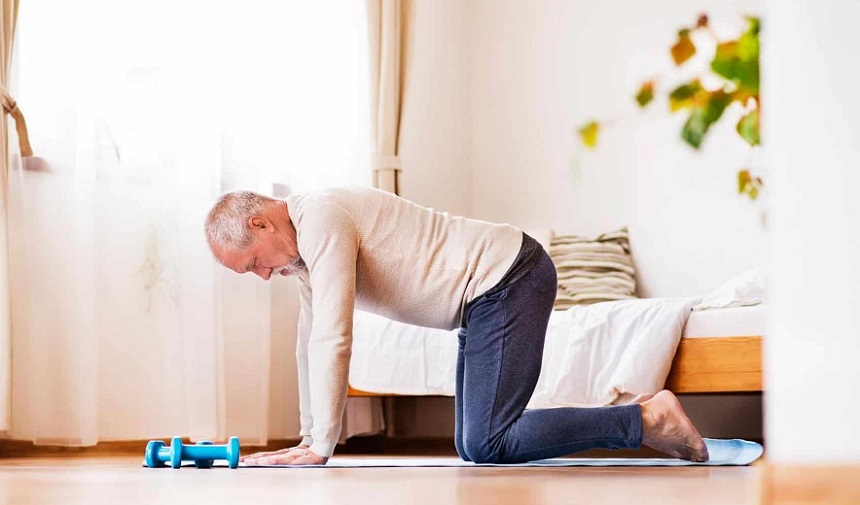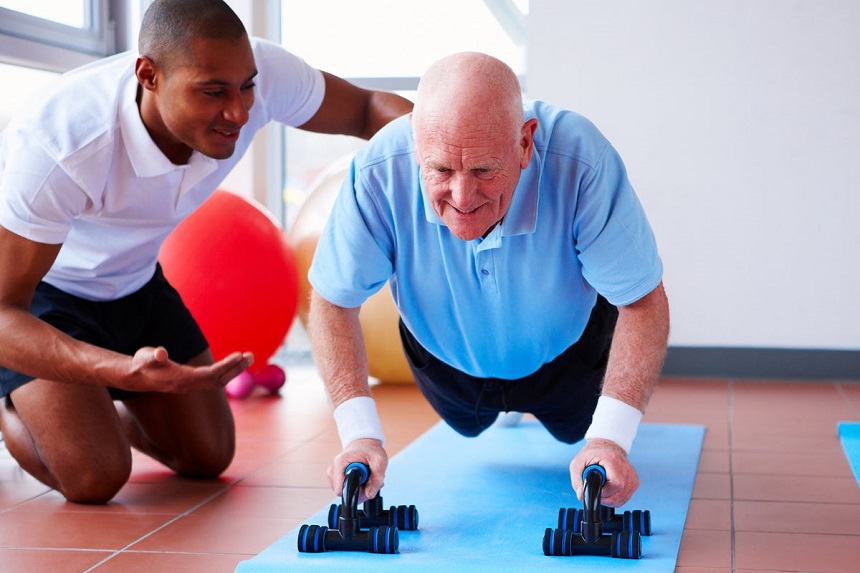When was the last time you heard an octogenarian still actively playing soccer? If your answer is never, you’re not alone.
There seems to be a misconception between old age and physical activity. Most people believe you can’t be active anymore as you get older. That shouldn’t be the case; age should never stop anyone from being physically active through sports. As long as there are appropriate safety rules in sports for seniors, they should be able to enjoy the activity they used to love doing when they were younger.
Sports, and exercising in general, are not just for young people. Everyone should be able to enjoy them regardless of age. And why shouldn’t they? It’s been proven that exercise improves blood flow, elevates your mood, builds up your muscles, and helps prevent various diseases. For senior citizens, having those benefits can significantly improve their quality of life Trusted Source The Importance of Physical Activity Exercise among Older People - PMC In this special issue of BioMed Research International, the focus is on lifestyle and in particular physical activity (PA) as a driver for a healthy and long life for older people. www.ncbi.nlm.nih.gov . Safety rules in sports will ensure they don’t get hurt.
Despite the well-known benefits of being physically active through sports Trusted Source Judo training program improves brain and muscle function and elevates the peripheral BDNF concentration among the elderly | Scientific Reports Programmed exercise interventions modulating both physical fitness and cognitive functions have become a promising tool to support healthy aging. www.nature.com , we must remember that seniors’ bodies are no longer as flexible and durable as they once were. The effects of aging on their body may mean that they’re now more susceptible to bruises or that their bones are more brittle. Safety in sports should always be paramount when it comes to senior citizens.
That said, there shouldn’t be a hard limit on how often seniors can do sports. Every day would be ideal if the senior could handle it. If not, rest days will have to be incorporated so that they don’t overwork and injure themselves. The goal for them is to stay healthy and active.

Always wear comfortable clothing and get quality equipment.
Any senior citizen looking to try a new sport should keep the following sports safety tips in mind:
Never assume that you can handle the same intensity as you did when you were younger. Always check with your doctor first and have them perform a physical exam. Doctors can give you a better idea of what type of activity your body can handle and how long. Don’t worry if it turns out to be not as much as you expected; you can always gradually work your way up to your goal.
If you’re just restarting your physical activity, consider signing up for a professional training program. Make sure you work with someone who specializes in elderly sports, as they’ll better understand how aging affects the body. The last thing you want is to get injured because a trainer overestimated what you can handle.
Wearing comfortable exercise gear should always be a top concern, regardless of age. Make sure your clothes are comfortable – not so tight that they restrict your movement, but not so loose that they get in your way. You want your clothes to fit you just enough to allow for movement and ventilation while promoting safe circulation.
Your body when you were in your 30s is much different than your body now, so keep this in mind when playing sports. Your bones and muscles have aged since then, so you’ll need to lower your intensity and take more frequent breaks. Slips and falls won’t be absorbed as easily anymore, either, so be careful.
Balance exercises
Trusted Source
NHS | Exercises for older people
If you’ve not done much physical activity for a while, you may
want to get the all-clear from a GP before starting.
assets.nhs.uk
help ensure your body stays fit and your muscles are stretched. Always start with some balance exercises before moving on to your main activity. Try using accessories such as a weighted medicine ball to aid with your strength and balance.
Never start any physical activity without warming up first. Anyone, regardless of age, should always do warm-up exercises before doing anything strenuous.
If you’re unsure what’s a good warm-up routine, why not try one of the best pedal exercises for seniors.

It’s best to ask a professional trainer for help so that you won’t get injured.
Whether you’re playing a sport outdoors or indoors, safety rules in sports for seniors remain the same. Let’s take a look at them.
Consult your doctor or your physical trainer (or both!) about what kind of intensity your body can take. If you’re starting again recently, your limit may not be as much, so be patient. Let them know that you wish to increase your activity progressively, but you also need to listen to their guidance.
If you’re noticing yourself starting to get tired sooner than you’re used to, don’t ignore it. Slow down, take a break, or call it done for the day. As your body ages, you need to be more attentive to the signs your body is giving you. Ignoring these warnings could cause injury.
Warming up should always be taken seriously, regardless of how mundane it might feel. Safety rules in sports for seniors are in place to protect you from getting hurt. Even if it’s something as simple as doing reps of lifting a lightweight neoprene workout dumbbell, it’s still contributing to getting your muscles warmed up for a strenuous sport.
When working with a fitness trainer, make sure you follow their instructions. They can keep an eye on your posture and activity levels and observe whether to slow you down or let you keep going. Don’t get frustrated if they’re stopping you sooner than you’re expecting. They’re only trying to keep you away from the injury so you can enjoy the sport again the next day.
Appropriate clothing during exercise is essential, especially for seniors. They must make sure it’s not too loose or too tight, but they also need to regulate their body temperature. The last thing a senior citizen need is a case of hyperthermia or hypothermia.
You don’t need to be a senior citizen to watch your posture when playing a sport, but this is especially important for them. That’s because any wrong move can produce a worse result if the posture is improper. If partaking in a slower activity such as walking or hiking, consider using one of the best walking canes to ensure you’re walking with proper posture.
All the safety rules in sports for seniors will be all for naught if you don’t drink water. You need to replace the fluids you lose as you exercise; if you don’t, you'll be dehydrated Trusted Source The effect of mild dehydration on physical fitness of elderly individuals - PMC In this study, the effect of mild dehydration on physical performance of elderly (60 to 75 years old) healthy subjects was evaluated. www.ncbi.nlm.nih.gov , and your muscles will cramp. This is a higher risk when exercising during hot weather, as you risk hyperthermia if you’re not careful.
Because slips and falls are more dangerous for seniors than younger folks, you need to be careful of your surroundings. If you’re playing sports indoors, make sure you have enough room to move around. If not, consider moving to a lower-traffic area.
If you’re exercising outdoors, be careful of uneven surfaces. Consider using something to help you detect changes on the pavement, such as one of the best quad canes. The cane should help you retain your balance if the surface suddenly becomes uneven.
Safety rules in sports for seniors are there to let you enjoy the activities you used to enjoy but adjusted to accommodate your aging body. Take it easy, and stretch before starting anything strenuous, so you don’t injure yourself. And if you’re just starting out, consider increasing your strength and balance again to improve your endurance.
And if your doctor or physical trainer tells you to slow down, listen to them. They have your best interests in mind, and the last thing they want is to see you hurt yourself. Be patient as it may take longer to build your strength and endurance. As long as you’re careful and mindful of your surroundings, you’re on your way to enjoying your favorite sport again.